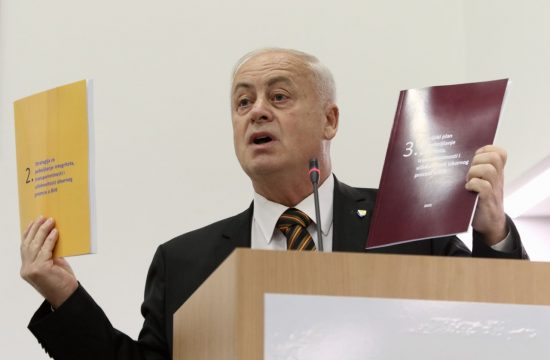It seems that the United States is reluctant to introduce sanctions against BiH Presidency member Milorad Dodik over his efforts to withdraw Bosnia’s Republika Srpska (RS) entity from state institutions and such a move can hardly be expected from the European Union which is itself divided on the issue, Regional Editor in the Europe team at the Economist Intelligence Unit, Joan Hoey, told N1.
The National Assembly of Bosnia’s Serb-majority RS entity has recently voted in favour of Dodik’s initiative for the RS to unilaterally withdraw from a number of BiH institutions, including the army, taxation authority and judicial bodies, and to form its own separate ones.
The international officials overseeing the civilian implementation of the 1995 Dayton Peace Agreement in BiH, High Representative Christian Schmidt, as well as many officials from the US, UK and the EU have warned that these efforts could lead to further destabilisation of the region.
The British ambassador to BiH recently told N1 that his government is discussing the possible introduction of sanctions against Dodik, while Germany called on the EU to do so.
However, Hoey said that “the EU itself is divided on the issue of sanctions,” arguing that some member states, such as Slovenia and Hungary, have publicly expressed opposition to such a move.
“It’s very difficult for the EU to do anything, or even for unilateral sanctions, that’s not something that the EU would do,” she said.
“I think the US has also shown some reluctance to go down this route already. There has been a lot of discussions but I’m not sure how ready the US is to confront the Bosnian Serbs for various reasons,” she said.
Hoey argued that one factor that may be influencing this is “a desire not to drive the Bosnian Serbs to go one step further and not to drive them into the arms of Russia.”
She noted that if the US were to take this step, the UK would likely follow suit.
“But at the moment there seems to be maybe a certain reluctance to do it and perhaps a preference to pursue the kind of behind-the-scenes diplomacy,” she said.
She also spoke about the UK’s appointment of Sir Stuart Peach as the special envoy for the Western Balkans, arguing that it represents “a message that the UK is going to play a serious role in the international arena and considers that what happens in the Western Balkans is of great importance not only to continental Europe but also to the UK.”
Hoey noted that the situation in the region is rather unstable and worrying, not only in Bosnia and Herzegovina but also in North Macedonia, in Kosovo and Montenegro.
But she argued that a lot of the worrying developments in those countries do not have as much to do with Russia’s involvement as “political developments in the region itself and the local political dynamics” due to “the effective withdrawal of the offer of membership by the EU.”
“Now of course the EU will say that it’s still wholly committed to the region, to the perspective of membership for all the six Western Balkan countries. But we also know, and I think it is clearly recognised in the region, that that process seems to have been stalled for some time. We also know that there is significant opposition among key EU member states to further eastward enlargement, and that’s notably in France and the Netherlands,” she said.
More about the way the roles and motivations of the UK, the EU, the US and Russia in the Western Balkans, as well as the problems in the region and the reasons behind them, can be heard in the full interview linked above.





Kakvo je tvoje mišljenje o ovome?
Budi prvi koji će ostaviti komentar!